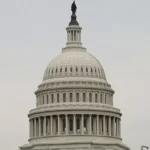In a bold move against rampant censorship, alternative media giants have launched lawsuits targeting a vast network of government agencies, tech companies, and private organizations. This coalition, aptly dubbed the “censorship-industrial complex,” is accused of suppressing free speech under the misleading guise of combating misinformation. These lawsuits aim to expose and dismantle the intricate web of collusion that has stifled dissent and critical voices, particularly those challenging official narratives on pivotal issues like COVID-19.

The plaintiffs, Brighton Media and Webseed argue that this coordinated effort to silence opposition violates constitutional rights and is an existential threat to the foundation of free discourse in society. They contend that these powerful entities are monopolizing the digital public square by labeling and demonetizing alternative viewpoints. This move is seen as a desperate attempt to control the narrative and suppress any form of resistance or questioning, undermining the fundamental principles of democracy.
Lawsuit Details
Brighteon Media and Webseed have filed a federal lawsuit that pulls no punches in its accusations. They claim that major players like Google, Facebook, Twitter, and various U.S. government departments orchestrated a massive, insidious censorship campaign.
The lawsuit, lodged in the United States District Court for the Western District of Texas, lays bare how these entities allegedly conspired to silence dissenting voices. This collusion is framed not as a simple regulatory measure but as a calculated strategy to eliminate any opposition to their agendas.
The plaintiffs allege that these censorship tactics were particularly ruthless towards content critical of government policies, especially regarding COVID-19. By using blacklists and deceptive “nutrition labels” to reduce visibility and ad revenue, these entities inflicted substantial economic damage and tarnished reputations.
This systematic suppression of alternative media is portrayed not just as an infringement of free speech but as a blatant act of corporate and governmental tyranny aimed at controlling public opinion.
Key Accusations
Central to the lawsuit is the claim that the government and tech companies developed and promoted sophisticated tools to blacklist and demonetize websites such as NaturalNews.com and Brighteon.com. These tools, which include blacklists and so-called “nutrition labels,” were wielded to devastating effect.
They argue that this collaboration went beyond mere content moderation, venturing into the realm of outright suppression of any narrative that deviated from the mainstream, effectively silencing opposition through economic and reputational damage.
The plaintiffs argue that this censorship was driven by an “anti-competitive animus” aimed at eradicating alternative viewpoints from the digital landscape. By reducing these platforms' visibility and ad revenue, the involved parties inflicted losses estimated between $25 million and $50 million.
This coordinated attack on free speech is painted as a gross abuse of power, where tech giants and government agencies acted in concert to stifle dissent and monopolize the information ecosystem, thereby stifling democratic discourse and public debate.
Broader Implications
The lawsuit underscores a broader, more sinister pattern of government overreach into the digital information space. The government is accused of circumventing constitutional protections designed to safeguard free speech by collaborating with private tech companies and NGOs.
This practice, termed “censorship laundering,” involves outsourcing censorship to overseas organizations, which then pass these directives back to tech platforms. This convoluted process allows the government to maintain a veneer of plausible deniability while still exerting control over public discourse.
This alarming trend is not just an isolated incident but part of a broader strategy to silence any voice that challenges the status quo. The implications are far-reaching, suggesting that any dissenting opinion can be suppressed if it does not align with the official narrative.
Undermines the principles of free speech but also threatens the very foundation of a democratic society…
This not only undermines the principles of free speech but also threatens the very foundation of a democratic society where open debate and diverse viewpoints are supposed to thrive.
Historical Context
Journalist Glenn Greenwald has exposed how former security state operatives occupy top positions at Big Tech firms, managing misinformation policies and limiting public debate. This infiltration is reminiscent of the CIA's Operation Mockingbird, which covertly influenced media narratives in the past. Greenwald argues that what was once a covert operation has now become a blatant, unashamed partnership between the state and corporate media to control and limit public discourse.
This historical parallel underscores the gravity of the current situation. The merging of corporate media, big tech, and the security state creates a formidable apparatus for controlling information. The chilling effect on free speech is profound, as dissenting views are systematically purged from mainstream platforms, leaving only state-approved narratives. This orchestrated control of information flow is not just an affront to free speech but a step toward totalitarianism.
Recent Developments
The release of the “Twitter Files” by Elon Musk has been a game-changer. It revealed extensive collaboration between the Biden administration and Twitter to censor specific content, including the Hunter Biden laptop story and dissenting views on COVID-19.
These revelations have spurred a series of lawsuits against entities like the Center for Countering Digital Hate and NewsGuard, alleging deceptive practices aimed at silencing free speech. These lawsuits highlight how deep the rot of censorship goes, involving both government agencies and supposedly neutral fact-checking organizations in a concerted effort to suppress dissent.
The plaintiffs argue that these actions represent a grave violation of the First Amendment, calling for an end to the use of these censorship tools. They contend that the government's involvement in these censorship efforts is not just unconstitutional but fundamentally un-American. By shining a light on these practices, the lawsuits aim to restore the integrity of public discourse and protect the right of individuals to express dissenting opinions without fear of retribution.
Community Response
The community's response has been one of outrage and solidarity. The plaintiffs in these lawsuits seek both monetary damages and injunctive relief to prevent further censorship. They argue that these actions violate the First Amendment and call for an end to the use of censorship tools that stifle diverse viewpoints. The community sees these lawsuits as a crucial step towards reclaiming their right to free speech and holding those responsible for these violations accountable.
This fight against censorship is about winning legal battles and safeguarding the fundamental freedoms underpinning a democratic society. As these lawsuits progress, they promise to shed light on the complex interplay between government agencies, tech companies, and censorship tools.
The outcome could have significant implications for the future of free speech and online content regulation, marking a critical juncture in the fight against censorship. The community stands united in this battle, determined to ensure that the voices of dissent are not silenced.

Lifelong bacon junkie. Lifelong internet fanatic. Hipster-friendly travel aficionado. Twitter lover. Avid food buff. Incurable travel trailblazer.













